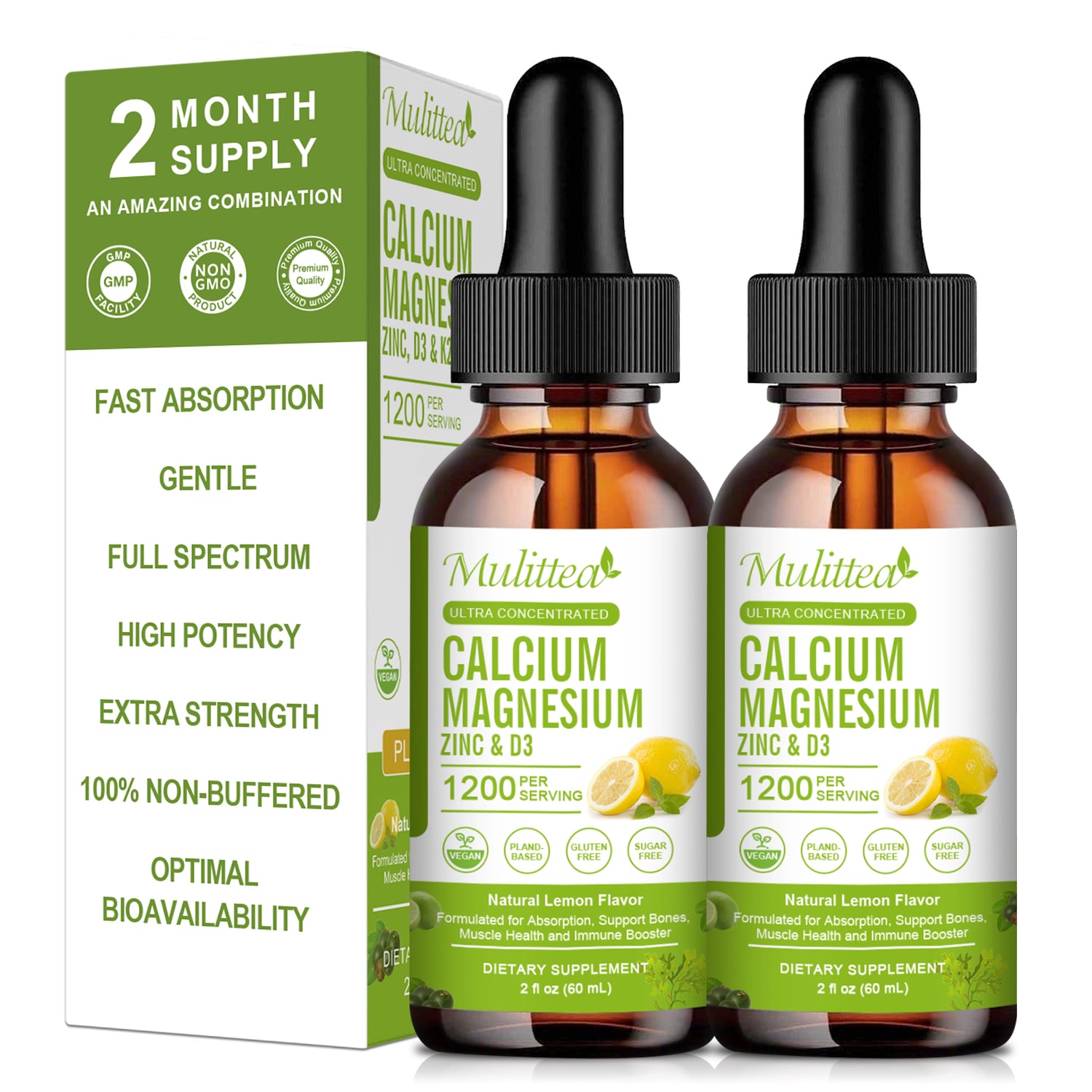
Chondroitin Sulfate Comprehensive Guide: Benefits, Uses, and More
Share
When it comes to maintaining healthy joints and bones, many of us focus on the usual suspects—calcium, vitamin D, and magnesium. However, there's another vital component often overlooked in the conversation: chondroitin sulfate. This naturally occurring substance has become increasingly popular in the world of joint health and is frequently used as a supplement to support cartilage integrity and reduce symptoms of osteoarthritis.
In this comprehensive guide, we will explore what chondroitin sulfate is, its health benefits, sources, proper usage, and safety considerations. Whether you are dealing with joint pain or simply looking to support your skeletal system, understanding chondroitin sulfate can be an essential step toward optimizing your bone and joint health.
What is Chondroitin Sulfate?
Chondroitin sulfate is a naturally occurring compound found in the connective tissues of our body, particularly in cartilage, which acts as a cushion between bones in the joints. It is a complex carbohydrate (glycosaminoglycan) that helps provide structure and elasticity to cartilage and other tissues such as tendons and ligaments.
Structurally, chondroitin sulfate is a component of proteoglycans, which are large molecules that trap water in cartilage. This helps maintain the cartilage’s ability to resist compression, ensuring joints can move smoothly and absorb shock. It plays an essential role in the body’s ability to maintain healthy and flexible joints, which is why it’s commonly used to help manage symptoms of joint disorders like osteoarthritis.

Health Benefits of Chondroitin Sulfate
Chondroitin sulfate is best known for its beneficial effects on joint health. Here’s how it helps:
1. Promotes Joint Health
Chondroitin sulfate is often used in combination with glucosamine to treat symptoms of osteoarthritis, a condition in which the cartilage in the joints deteriorates over time, causing pain, stiffness, and reduced mobility. Studies suggest that chondroitin sulfate can slow the progression of cartilage loss and may even help in rebuilding the cartilage. By supporting cartilage regeneration and reducing the breakdown of joint tissues, chondroitin sulfate helps improve joint function and flexibility.
2. Reduces Inflammation
Inflammation is a common symptom in joint conditions such as arthritis, and chondroitin sulfate has been found to possess anti-inflammatory properties. It can help reduce the inflammation in the joints, providing relief from pain and stiffness. By controlling the inflammatory response, it may improve the overall comfort and mobility of those suffering from inflammatory joint disorders.
3. Supports Bone Health
Chondroitin sulfate may not only protect cartilage but also play a role in bone health. Bone strength and cartilage health are interconnected, as the cartilage surrounding joints relies on healthy bones for structural support. Some studies suggest that chondroitin sulfate, by supporting cartilage regeneration, could indirectly benefit bone health as well, especially in terms of maintaining joint integrity and preventing bone-on-bone contact.
Sources of Chondroitin Sulfate
Since the body produces chondroitin sulfate naturally, it can also be obtained from dietary sources and supplements. Here are the main sources:
1. Natural Sources
Chondroitin sulfate is primarily sourced from animal cartilage. The most common natural sources include:
· Cow and pig cartilage: These are often used in the production of chondroitin sulfate supplements.
· Shark cartilage: Some supplements use shark cartilage as a source of chondroitin sulfate.
While these animal-based sources are the most potent and readily available, they may not be suitable for people with dietary restrictions such as vegetarians or vegans. Fortunately, plant-based alternatives are becoming available.
2. Supplementation
For those who struggle to obtain chondroitin sulfate from natural food sources, supplementation is a practical option. Most chondroitin sulfate supplements are derived from animal cartilage. These supplements typically come in capsule, tablet, or powder form, often combined with other joint-supporting ingredients such as glucosamine, MSM (methylsulfonylmethane), and hyaluronic acid. Liquid forms are also available for people who prefer easier digestion or have difficulty swallowing pills.
Supplements are widely available at pharmacies, health stores, and online, and they provide a convenient way to increase chondroitin sulfate intake, especially for those who need additional joint support.
How to Take Chondroitin Sulfate
When considering supplementation, it’s important to know how to take chondroitin sulfate effectively to reap the maximum benefits.
Recommended Dosage
The typical recommended dosage of chondroitin sulfate ranges from 800 to 1,200 milligrams per day. It’s often taken in divided doses (e.g., 400 to 600 milligrams twice daily) to improve absorption and minimize potential digestive discomfort. However, dosage can vary depending on individual needs and the severity of the condition being treated.
Forms of Chondroitin Sulfate
Chondroitin sulfate is available in various forms, and your choice will depend on personal preference and convenience:
· Capsules/Tablets: The most common form, easy to swallow and widely available.
· Liquid: Easier to digest, and ideal for people with difficulty swallowing pills.
· Powder: This can be mixed with water or smoothies and provides an easy way to adjust the dosage.
It’s important to follow the recommended dosage on the supplement label or consult with a healthcare provider to determine the correct amount for your needs.
Is Chondroitin Sulfate Safe?
Chondroitin sulfate is generally considered safe for most people when taken in appropriate amounts. However, as with any supplement, it’s important to be aware of potential side effects and interactions.
Possible Side Effects
While chondroitin sulfate is usually well tolerated, some individuals may experience mild side effects such as:
· Digestive discomfort (gas, bloating, or diarrhea)
· Headaches or dizziness
· Skin rashes (rare)
These side effects are typically mild and go away as the body adjusts to the supplement. If any adverse reactions persist or worsen, it’s important to consult a healthcare provider.
Interactions with Medications
Chondroitin sulfate may interact with blood-thinning medications such as warfarin (Coumadin), as it can have a mild anticoagulant effect. If you are taking blood thinners or have a bleeding disorder, it’s crucial to consult a doctor before starting chondroitin sulfate supplementation.
Precautions
Since chondroitin sulfate is often sourced from animals (e.g., shark or cow cartilage), individuals with allergies to shellfish or other animals should avoid chondroitin supplements made from those sources. Always read the labels carefully and, if necessary, seek a plant-based or alternative version.
Conclusion
Chondroitin sulfate is an essential compound for maintaining joint and cartilage health, particularly for those with osteoarthritis or other joint conditions. Whether sourced from natural cartilage or taken as a supplement, it offers numerous benefits, including improved joint function, reduced inflammation, and support for bone health. When considering chondroitin sulfate supplementation, be sure to follow the recommended dosage, consult with a healthcare provider if necessary, and be mindful of potential side effects or interactions with medications.
As with all supplements, it’s important to take a holistic approach to joint health, combining chondroitin sulfate with a balanced diet, regular physical activity, and other joint-supportive nutrients for optimal results. By incorporating chondroitin sulfate into your health regimen, you can take significant steps toward maintaining a healthy, active lifestyle with strong, flexible joints.
References
· "Chondroitin Sulfate." National Institute of Arthritis and Musculoskeletal and Skin Diseases, U.S. Department of Health and Human Services, https://www.niams.nih.gov/health-topics/chondroitin-sulfate.
· McAlindon, T. E., et al. "Chondroitin Sulfate for the Treatment of Osteoarthritis." The New England Journal of Medicine, vol. 359, no. 8, 2008, pp. 818–829. https://doi.org/10.1056/NEJMoa0802020.
· "Chondroitin Sulfate." Mayo Clinic, Mayo Foundation for Medical Education and Research, https://www.mayoclinic.org/drugs-supplements/chondroitin-sulfate/art-20363617.

